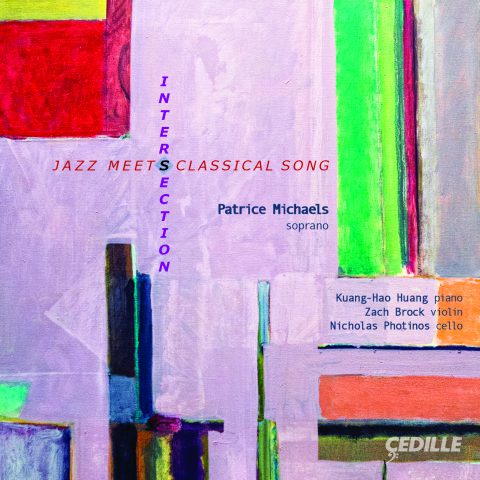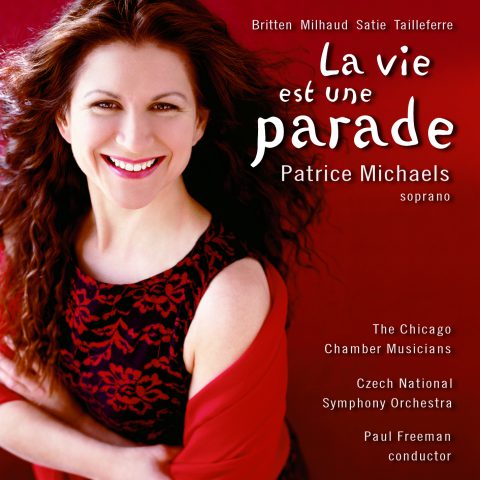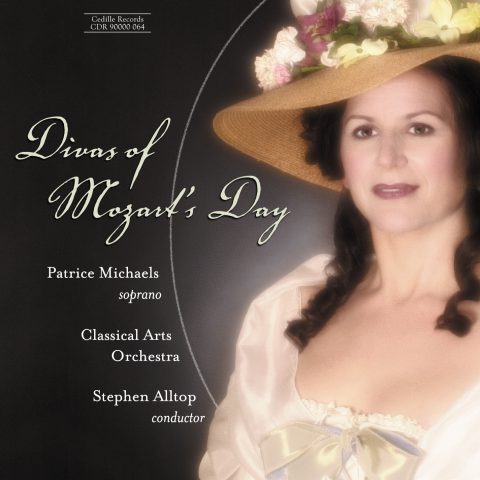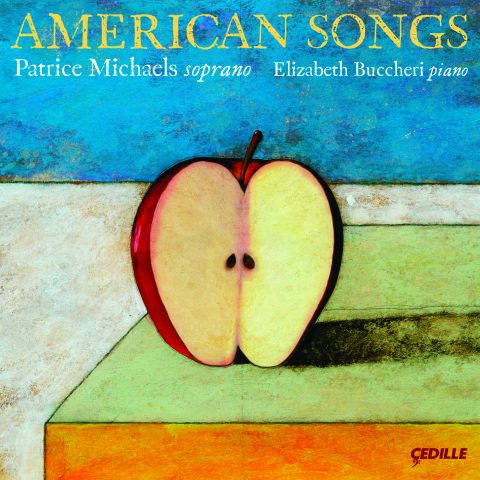Store
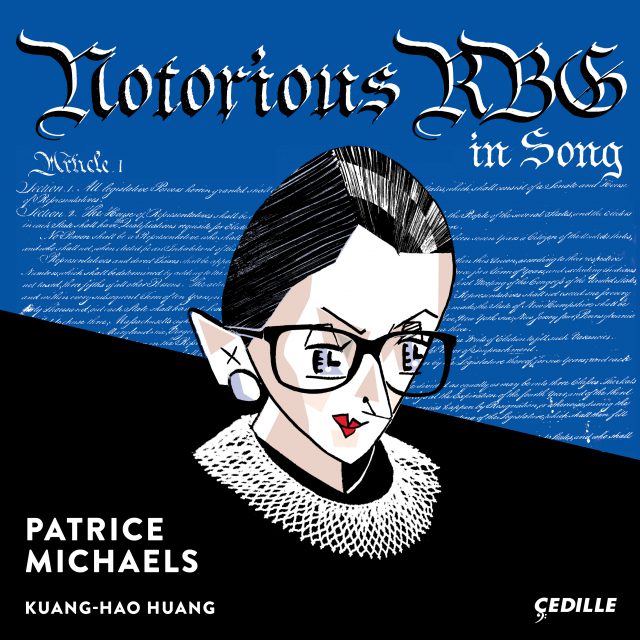
Soprano Patrice Michaels, “a formidable interpretative talent” (The New Yorker), and collaborative pianist extraordinaire Kuang-Hao Huang offer Notorious RBG in Song, an album of world-premiere recordings saluting the life and work of legal pioneer Ruth Bader Ginsburg in celebration of her completion of 25 years on the United States Supreme Court. Ginsburg, a longtime crusader for equal rights, has become a pop culture icon known as “Notorious RBG” (a wry nod to the late rap artist, The Notorious B.I.G.).
Michaels, a vocalist of “spectacular and diverse gifts” (Journal of Singing) is also a gifted composer. Her nine-song cycle, THE LONG VIEW, illuminates key aspects of Justice Ginsburg’s personal and professional life through letters, remembrances, conversations, and even Court opinions. The album concludes with songs by American composer Stacy Garrop, winner of many prestigious awards and commissions; JUNO Award-winning Canadian composer Vivian Fung; prolific art-song composer Lori Laitman; and an aria from Derrick Wang’s new comic opera, Scalia/Ginsburg.
American composer Stacy Garrop, recipient of many prestigious awards and commissions, based her deeply moving “My Dearest Ruth” on the farewell love letter the Justice’s husband, Georgetown University law professor Martin Ginsburg, wrote shortly before his death in 2010. The aria “You are Searching in Vain for a Bright-Line Solution,” from Derrick Wang’s opera Scalia/Ginsburg, which captured widespread media attention, crystallizes Justice Ginsburg’s views on interpreting the U.S. Constitution. JUNO Award-winning Canadian composer Vivian Fung’s humorous “Pot Roast à la RBG” provides directions for preparing the beef dish, using Justice Ginsburg’s own words as related in the text by daughter Jane Ginsburg. Prolific art-song composer Lori Laitman’s setting of the Emily Dickinson poem “Wider than the Sky” wasn’t written with Ginsburg in mind, but it was performed at her 80th birthday celebration because it perfectly embodied her intellectual breadth.

Listen to Steve Robinson’s interview
with Patrice Michaels on Cedille’s
Classical Chicago Podcast
Preview Excerpts
PATRICE MICHAELS
THE LONG VIEW: A Portrait of Ruth Bader Ginsburg in Nine Songs
LORI LAITMAN
VIVIAN FUNG
STACY GARROP
DERRICK WANG
Artists
Program Notes
Download Album BookletTHE LONG VIEW: A Portrait of Ruth Bader Ginsburg in Nine Songs
Notes by Patrice Michaels
I. Justice Douglas could imagine in 1943 that there might be a place for women clerks in the Supreme Court Chambers, but, years later, top-of-the-law-class Ruth was refused just such a position. She had three strikes against her, according to the prevailing sentiment: in addition to being female, she was Jewish, and a mother. Embedded within this song is the American folk song theme “Pretty Little Girl with the Red Dress On” meant to represent Justice Douglas’ sensibilities, and Justice Ginsburg’s musical motive, D-B-G.
II. Justice Ginsburg often publicly credits her mother, Celia Amster Bader, as the smartest, most influential woman in her life. Celia’s love of reading, of American values, and of her sole surviving daughter bore fruit in Joan Ruth, the girl who was able to persevere in the face of her mother’s terminal illness, reaching intellectual and professional heights unimaginable by virtually any mother in 1949. It’s particularly unfortunate that there is no extant correspondence or writing of Celia’s. This imagined letter is rooted in factual accounts by RBG, her cousin Beth Hess, and biographer Mary Hartnett. Celia’s theme, C-A-B, provides a haunting motive as she expresses her anxieties and pain between the lines of her letter to “Kiki.”
III. Morris Ginsburg, Ruth’s father-in-law, is reported to have been a wonderful dancer, full of joie de vivre, and possessing a sense of humor and directness emulated by his son Martin (alas, there is no evidence of terpsichorean prowess passed on to Martin). Justice Ginsburg credits her father-in-law with the loving challenge to stop worrying, and to reach for her academic and professional dreams, impending motherhood notwithstanding. The bass line for this song represents Ruth’s pregnant body and ruminative state of mind, which gives way to Morris’s lilting challenge “Do, do, do.” The song was conceived at the piano in the Ginsburg family home while Justice Ginsburg indulged in one of her famous “Saturday sleep-ins.”
IV. Martin D. Ginsburg, dubbed “Model Husband” by friends who went so far as to honor him with his very own insignia and lapel button, was exceedingly proud of the accomplishments of his spouse. He took unbounded joy in the confluence of events that allowed them to work together on a case that proved to have major repercussions on issues of gender equality (and very little influence on his own specialty, tax law), ultimately propelling Ruth to prominence that neither of them could have imagined when they began their courtship. His easy-going manner and humorous banter belied a wit equal to his wife’s, all of which is evident in this beautiful address, delivered to its intended audience, although posthumously, by the wife that Marty so adored. Martin’s theme, F-D-G, and the loping 5 beat rhythm with a walking bass line, provide the compositional backbone for his musical portrait.
V. In 2013, sister and brother Jane and James Ginsburg decided they would like to give their mother an 80th birthday gift of three songs by three women composers. They engaged Stacy Garrop, Vivian Fung, and me. Each of us was presented with a text from Justice Ginsburg’s life, and the resulting songs were premiered at a celebration organized and attended by many of justice Ginsburg’s 33 years’ worth of clerks. The text I received became the genesis for THE LONG VIEW song cycle. Many of the essential components of RBG’s life are vividly described through Anita’s eyes: most compelling for me is the personal transformation and empowerment Anita herself experiences, thanks to the work of a little woman with a soft-spoken voice, wearing something wonderful.
VI. My own mother was a woman who worked outside the home. As a child, I was aware of her pride in being able to provide income to help support our family, her enthusiasm for the professional environment to which she contributed, and her anxiety that her children might be suffering from her absence. This one sentence, uttered by Audrey Maynard’s mother at a playdate Jane Ginsburg attended in 1961, perfectly captures the concern of those times. I have surrounded this remark with a piano solo representing the playful sounds of Jane and her friend Audrey, two 6-year-olds growing up to be fearless women
VII. Ruth and Marty had a second child, James, in 1965. More than ten years after Jane and Audrey’s playdate, schools were still functioning on the assumption that mothers were the caregivers and could be summoned at will, regardless of their other responsibilities. It’s possible that “lively” James’s behavior actually served to hasten RBG’s emancipation from that concept, as the demands of her academic position and burgeoning career litigating gender-based discrimination cases left little time for nonsense. Her creative solution to yet another call from the headmaster served to amuse her husband and flummox the administration, much to the benefit of prankster “Jamesie.” My poetic rendition of this family story embellishes only the names of the absent elevator operator and the janitor — the names of James’s partners in crime are withheld to protect the innocent (or the daring!).
VIII. Justice Ginsburg is renowned for her succinct and expressive writing. This song highlights key portions of a few of her most influential dissenting opinions. The second of these, Ledbetter v. Goodyear, provided a challenge to elected leaders that yielded new legislation on equal pay for equal work, the first bill signed into law by President Obama. The body of the song features a theme that delineates each case with Justice Ginsburg’s corresponding dissenting opinion, followed by a coda in which RBG calmly affirms, in answer to an interviewer, that she will continue to dissent, when she feels the Court has veered in the wrong direction.
IX. Two clarion calls create a frame for this final movement profiling Ruth Bader Ginsburg. They signify her dedication to the principle of law as an essential pillar of American democracy and her abiding enthusiasm for the work of the law. Within this frame, RBG offers candid observations on the requirements of the job, details the challenge of maintaining high-level functioning decade after decade, and even pokes a bit of fun at herself. Her fantasy profession, “grand opera diva,” melds with her famous ability to defuse tension and sidestep deliberately provocative questions, as the song and the cycle wing her away on a high note.
Wider than the Sky
Notes by Lori Laitman
Wider Than The Sky, from my short cycle Two Dickinson Songs, was composed in 2002 (rev. 2003) as a gift for my mother-in-law, Eleanor Slimp Rosenblum on the occasion of her 75th birthday, and was also dedicated to the wonderful pianist Warren Jones. Soaring vocal lines above a subdued piano texture open the work, allowing Dickinson’s verse to shine. Midway through, an unusual modulation and quickening of pace accompany “The Brain is just the weight of God.” The song concludes with an air of mystery, as the piano reiterates this melody over somewhat dissonant harmonies.
Pot Roast à la RBG
Notes by Vivian Fung
Commissioned by Jane and James Ginsburg in celebration of Ruth Bader Ginsburg’s 80th birthday
Justice Ginsburg has been a wonderful role model on many fronts, and her values, strength, and reputed love for and knowledge of music all fit well with my views and beliefs. When I received the call from her son Jim about this project (songs by three different women composers), I could not say “no” to the opportunity to contribute to such a wonderful birthday present! The challenge was the nature of the text, a most unusual request in the form of a tongue-in-cheek “recipe” created by RBG’s daughter Jane (who also happened to be one of my husband’s most beloved law school professors). The recipe included not only dubious instructions for making a pot roast, but also whimsical and often humorous side anecdotes and life lessons that a busy mother would undoubtedly have. I decided to highlight the pitter-patter of the text, as well as the busy life that the recipe implied with lines such as “drink some black coffee, read some advance sheets, and tell one of your children to do his or her homework — for the third time.” The tempo marking indicated is “Lively like a busy chef,” and the piano accompaniment strives to keep the rhythm strong and active — at times march-like, other times more waltz-like. There are moments of reflection, e.g., encrustation as “the best part”; and moments of declamation, e.g., “no fat must contaminate the Pot Roast.” Ultimately, the song ends on a high note as the pot roast reaches its completion. Pure fun!
My Dearest Ruth
Notes by James Ginsburg
Commissioned by Jane and James Ginsburg in celebration of Ruth Bader Ginsburg’s 80th birthday
The letter on which My Dearest Ruth is based was my father’s last written statement. My parents celebrated their 56th wedding anniversary in my father’s room at John Hopkins Hospital in Baltimore on Wednesday, June 23, 2010. The following day, my mother called to say Dad had taken a turn for the worse. I flew to Baltimore the next morning (Friday) and met Mom at Dad’s room. The doctors came in and told us there was nothing more they could do — the cancer had progressed too far. All this time, Dad kept repeating one word: “Home.” So we made arrangements to bring him back to our apartment in Washington, D.C. While collecting his belongings from the hospital room, Mom pulled open the drawer next to Dad’s bed and discovered a yellow legal pad on which Dad had written the letter a week earlier. My sister, Jane, and I commissioned Stacy Garrop to adapt the letter and set it to music as one of three songs by different women composers to be presented in 2013 as an 80th birthday tribute to our mother, U.S. Supreme Court Justice Ruth Bader Ginsburg. Soprano Patrice Michaels sang the premiere at the Supreme Court with pianist Dana Brown on Saturday, April 6, 2013.
You are searching in vain for a bright-line solution, from Scalia/Ginsburg
Notes by Derrick Wang
Scalia/Ginsburg is a one-act comic opera about the power of friendship in a divided world. The plot, in brief: When U.S. Supreme Court Justices Ginsburg and Scalia are visited by a Higher Power, they must defend their differing opinions — and unexpected friendship — to win their freedom. True to its subject, the style of Scalia/Ginsburg can be described as “operatic precedent”: just as a court opinion refers to previous cases to develop a new decision, the words of Scalia/Ginsburg refer to actual Supreme Court opinions of the eponymous Justices, while the score refers to landmark operatic styles — transforming these sources into new commentaries on both music and law. Fittingly, in the virtuosic aria “You are searching in vain for a bright-line solution,” the character of Justice Ginsburg expresses her judicial perspective in a manner ranging from 19th-century opera to 20th-century jazz and beyond — an evolving style to match her view of an evolving Constitution.
It is my hope that Scalia/Ginsburg inspires listeners to follow the Justices’ example and find common ground with those with whom they disagree — for, in the words of the opera’s central duet, “We are different, we are one.”
Album Details
Total Time: 56:30
Producer: James Ginsburg
Engineer: Bill Maylone
Cover Art: Tom Bachtell
Graphic Design: Rubric
Recorded: June 28–29 and November 21, 2017, and January 16, 2018, Reva and David Logan Center for the Arts at the University of Chicago
© 2018 Cedille Records/Cedille Chicago
CDR 90000 178
